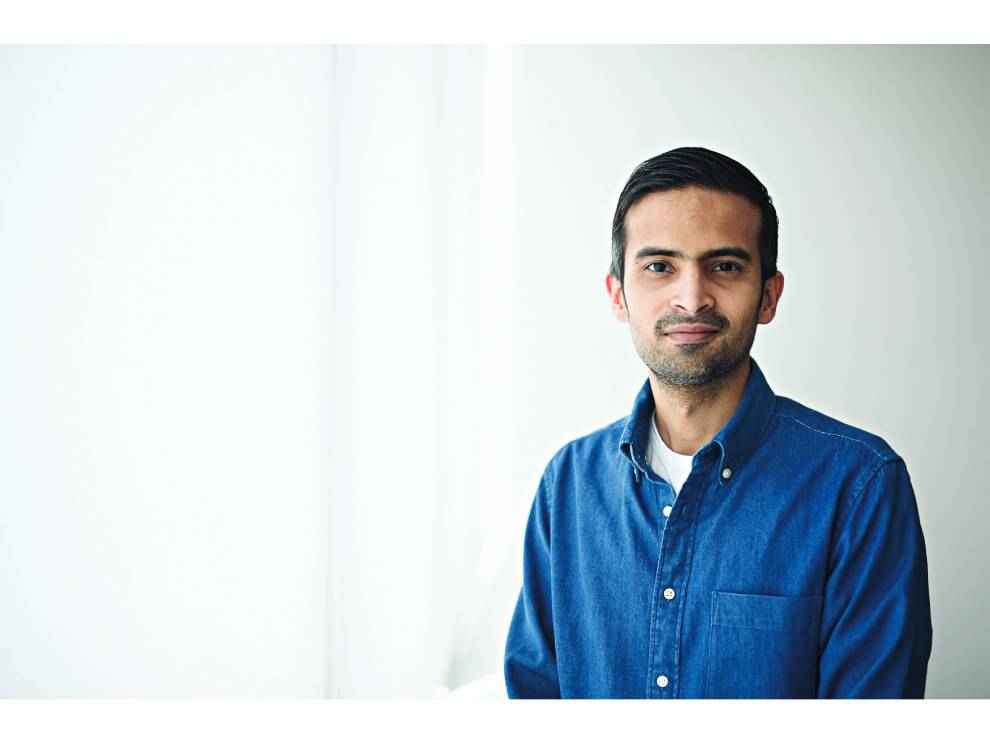Audible ki suno: Making the audiobook experience more accessible

On the eve of the launch of their newest service, Audible Suno, in India, we sit down with Don Katz, Founder and CEO, and Shailesh Sawlani, VP, Country GM Audible India, to understand their motivation for venturing out into the podcast space . Audible Suno is a free service with exclusive content voiced by noted storytellers such as Amitabh Bachchan, Rajeev Masand, Vir Das, Neelesh Mishra, Neena Gupta, Mouni Roy, and others.
digit : A lot of companies are focusing their attention on podcasts and even in India, specifically. Everyone's been giving different reasons for doing so and I wanted your perspective as to why you're launching Audible Suno?
Don Katz : So Audible Suno is a first, all original launch. We're not leveraging the audiobook franchise that we built, which is huge from all over the world. We're trying to leverage the depth of creativity and the professional creative community in India – which is in many ways deeper than anywhere else – towards Audible Suno. When we were planning Suno, all kinds of people came out of the woodwork with ideas for the future of the listening aesthetic, that's audible. There's the fact that we have a great team here which is very connected to the professional community and that helped a lot.
The idea was, let's do something that nobody else has done, with no advertising, no charge and just push it out. Then make it like a test tube of learning that consists of everything from the creative output to the consumer feedback, which we can then use in all of our services around the world. India seemed to be the right place to do that, so that's what we focused on here.
The podcast concept in the states is 750,000 people talking, often into their microphones. It's not necessarily an organized thing and the revenue is mostly from advertising. It's not gigantic, but, it's a very interesting way to see different people doing things that are important to them as speakers, and finding listeners in the world that care. As a company that kind of created a listening revolution, created the category and turned it into a really successful business without naming it “podcast”, most people around the world relate podcasts to the audible experience, be it long form, short form or whatever . Now, we decided to draw in some of the best voices and the best creativity for this. The exciting thing is that it's not just the writers and the actors, which is usually our main group of creators that we go to, But it's also the amazing number of directors, producers, soundscape designers and sound innovators are all coming onboard to help us define Suno in India. It's super exciting for me because the vision of the company wasn't just audiobooks, it was audiobooks as performed by sophisticated and nuanced acting. It was also having Robin Williams doing original programming from us in the year 2000 which was years before the word podcast came to be. So this is one of those 'dream come true' moments for me, where we're just doing a purely creative launch and having no barriers to listening for anyone, whether they have money or they don't. it was audiobooks as performed by sophisticated and nuanced acting. It was also having Robin Williams doing original programming from us in the year 2000 which was years before the word podcast came to be. So this is one of those 'dream come true' moments for me, where we're just doing a purely creative launch and having no barriers to listening for anyone, whether they have money or they don't. it was audiobooks as performed by sophisticated and nuanced acting. It was also having Robin Williams doing original programming from us in the year 2000 which was years before the word podcast came to be. So this is one of those 'dream come true' moments for me, where we're just doing a purely creative launch and having no barriers to listening for anyone, whether they have money or they don't.
Shailesh Sawlani : Coming to your point on 'why India and why do this now'. I think this is quite a unique situation where you have almost this confluence of factors. First, we have a culture of storytelling that's manifested in different ways and forms, both across generations as well as in different states right from oral storytelling culture to puppet shows, etc. In the modern scheme of things it even applies to just a really good story sticking out and performing well in a Bollywood setup. There's that recognition of really good stories. Second, the massive proliferation of digital media, devices and data. The third reason is the creative community that's thriving and vibrant in India.
So when we actually start to unpack and have these conversations with all the different talent that's associated with Suno including all the directors, writers and actors, it was clear that the way they're thinking about this is so unique and so experimental and so fun that it creates a unique audio experience, a unique audible experience. Combine all of these things and it becomes a really interesting place for us to try something like this. In terms of the awareness of the medium itself, it's just so low right now that if we can put this out in front of as many people as we can do it for free then that's the best way for people to experience it.
digit: With streaming services, what’s been observed in India is that if you have a paid premium service like Netflix or Audible then the adoption is very slow but when you have something free such as Hotstar, the adoption is rapid. Is that what you’re aiming with Audible Suno? You already have a premium service with a massive library that is Audible and then on the side you have a dedicated podcast app, Suno, which could act like a funnel for listeners to move into Audible.
Shailesh Sawlani: When it comes to Audible Suno, the objective was plain and simple. In fact, we didn’t even wait to see how the premium service is performing or ponder about what needs to be the direction that we need to take with the premium service. When we were here last year, immediately on that trip itself, we started talking about Audible Suno. So it’s taken a year for us to actually develop this super rich content slate with hundreds of hours of content. I think with Audible Suno, it was just about figuring out how we can get people to experience what audio entertainment is, and what the Audible experience is. If your question is about the monetisation or the business model then we can figure that out later. It’s a question of spurring the ecosystem of creators and getting the audience prepared for experiences. In fact, the premium service is continuing as is and we are even bolstering it with Hindi and Urdu audiobooks. So we’re quite encouraged by it and we’re investing further into the premium service. Whether Audible Suno has some sort of a macro effect on premium? Maybe, maybe not. I think it will evolve over time as we learn more and more.
digit: With India, it’s often a slightly risky environment when you’re trying to push out content, especially with the talk show format where you can have a highly opinionated persona who might offend a segment of the society. So do you have stricter guidelines for creators in India?
Shailesh Sawlani: We’re another place for creators to tell their stories. As a company, we believe in equality and inclusion, and that somehow manifests in some of the content that we’re doing and so on. But I think largely it’s another avenue for creators to tell their stories. And the creators are sensible in regards to how they approach such topics.
Don Katz: You have to look at our People Principles, particularly Activate Caring and the way we want to give voice to different kinds of views. Inciting people to hurt other people, deeply exploitative or hate-filled things would be easily taken down from the platform. We come from a relatively US First Amendment View. If it's in a public library and even if it's historically negative, then we don't censor it. If we have to modulate that because of a given country's laws or sensitivity then we play by the rules. I think our repertoire is pretty broad in terms of allowing diversity of people with different voices, identities and visions. Not withstanding sensitivities and sensibilities, we just believe that great stories need to be told.
Mithun Mohandas
Mithun Mohandas is an Indian technology journalist with 10 years of experience covering consumer technology. He is currently employed at Digit in the capacity of a Managing Editor. Mithun has a background in Computer Engineering and was an active member of the IEEE during his college days. He has a penchant for digging deep into unravelling what makes a device tick. If there's a transistor in it, Mithun's probably going to rip it apart till he finds it. At Digit, he covers processors, graphics cards, storage media, displays and networking devices aside from anything developer related. As an avid PC gamer, he prefers RTS and FPS titles, and can be quite competitive in a race to the finish line. He only gets consoles for the exclusives. He can be seen playing Valorant, World of Tanks, HITMAN and the occasional Age of Empires or being the voice behind hundreds of Digit videos. View Full Profile






